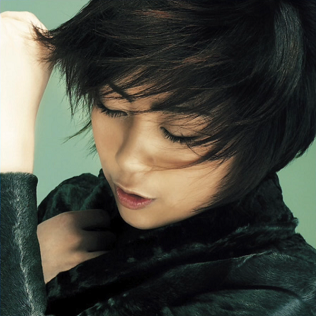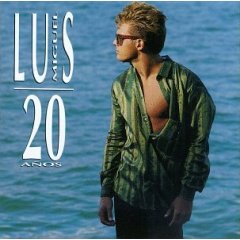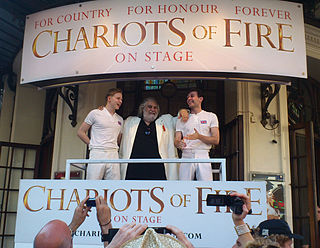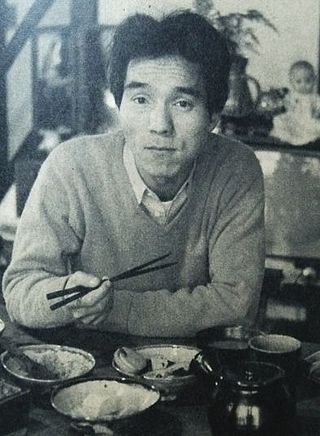
Yumi Matsutoya, nicknamed Yuming, is a Japanese singer, composer, lyricist and pianist. Generally the writer of both the lyrics and the music in her songs, she is renowned for her idiosyncratic voice and live performances, and is one of the most prominent figures in the history of Japanese popular music.

First Love is the debut Japanese-language studio album by Japanese-American recording artist Hikaru Utada, released on March 10, 1999, by Toshiba-EMI.

Distance is the third studio album by Japanese singer Hikaru Utada. Toshiba EMI released it on March 28, 2001, making it her second release with the label. Utada wrote and co-produced the majority of the album, alongside previous collaborators Akira Miyake and her father Teruzane Utada, as well as new collaborations with American producers Rodney Jerkins and Jimmy Jam & Terry Lewis. Distance, like its predecessor First Love (1999), is influenced by pop music and R&B, with additional hip-hop, rock music, reggae, and techno influences from Western music.

Deep River is the fourth studio album by Japanese-American singer Hikaru Utada. It was released via Toshiba EMI on June 19, 2002. The title of the album, as well as its title track, was inspired by the novel Deep River by Shusaku Endo. Utada wrote and co-produced the majority of the record, and unlike her previous album Distance (2001), she worked primarily with Japanese collaborator Akira Miyake and her father Teruzane Utada. Musically, Deep River is widely noted by fans and critics as the transition state from Utada's earlier style, R&B, to ethereal pop.
Reflections may refer to:
Akira Terao is a Japanese musician, singer and actor. As of 2012, he is the only male actor to have received both the Japan Record Award and the Japan Academy Award for Outstanding Performance by an Actor in a Leading Role.
Takashi Matsumoto is a Japanese lyricist and former musician. After several years playing the drums in the rock bands Apryl Fool and Happy End during the late 1960s and early 1970s, Matsumoto decided to focus on writing lyrics for others in 1974. As of 2015, he had written over 2,100 songs, 130 of which entered the top 10 on the Oricon chart. Total sales of the singles he has written exceed 49.8 million copies, making him the third best-selling lyricist in Japan. In 2017, he was awarded the Medal with Purple Ribbon from the Japanese government for his work in music.
Kazumasa Oda is a Japanese singer-songwriter, and composer. He was the leader of folk rock band Off Course from 1969 to 1989, and has done solo work since 1985.

Valenti is the second Japanese studio album by South Korean recording artist BoA, released through Avex Trax on January 29, 2003. The album's lyrics were written by multiple contributors including Natsumi Watanabe and Kenn Kato, with composition on the album handled by a team of composers including Kazuhiro Hara, Bounceback, Kosuke Morimoto, Ken Harada, and Akira. Valenti is a pop record containing influences from R&B and dance music, and is primarily recorded in Japanese with minor phrases in English.

After the Rain is a 1999 Japanese and French film. The story is based on the last script written by Akira Kurosawa and is directed by his former assistant director of 28 years, Takashi Koizumi. It was awarded a Japanese Academy Award in 1999. It was chosen as Best Film at the Japan Academy Prize ceremony.

20 Años is the seventh studio album recorded by Mexican singer Luis Miguel, It was released by WEA Latina on May 18, 1990. The album was produced by Spanish singer-songwriter, composer and record producer Juan Carlos Calderón, who had worked on the two previous albums by Luis Miguel, and was a massive success across Latin-America, Spain, and with Hispanic listeners in the United States. A large majority of the tracks from the album received radio airplay, but the songs officially issued as singles were "Tengo Todo Excepto A Tí", "Entrégate", "Amante del amor", "Hoy el aire huele a ti", "Más allá de todo" and "Será que no me amas".
Kōichi Morita, is a Japanese composer and singer who launched his recording career in the late 1960s and had gained huge commercial success during the 1970s.

Vangelis was a Greek musician, composer, and producer. He began his music career in the 1960s with the Greek progressive rock band Aphrodite's Child and in the 1970s began composing electronic music. He gained wide mainstream popularity after composing soundtracks to film Chariots of Fire (1981) and Blade Runner (1982). His solo career discography consists of 23 studio albums, 26 compilation albums, 12 soundtrack albums, and roughly 29 singles. The majority of his film, documentary, theatre, and ballet & dance scores weren't released or officially released. He also collaborated with Jon Anderson and as a duo Jon and Vangelis released 4 studio albums, 2 compilations, and 13 singles, and with Irene Papas released two studio albums.

9.5 Carats is the 12th studio album by a Japanese singer-songwriter Yosui Inoue, released in December 1984. It mostly features cover versions of the songs that Inoue wrote for other performers, except "Isso Serenade" which was released as a lead single in October 1984. It is the most commercially successful album for him, its sales are estimated to be 1.1-1.8 million copies.
Lazy is a Japanese rock band founded in 1973 by young classmates Hironobu Kageyama, Hiroyuki Tanaka and Akira Takasaki.
Events in the year 1981 in Japan.

Jūkichi Uno was a Japanese actor. In 1950, he formed the Gekidan Mingei (劇団民藝) with Osamu Takizawa and others.

Horse is a 1941 black-and-white Japanese drama film written and directed by Kajirō Yamamoto and starring Hideko Takamine. It is now best known for being the last film that Akira Kurosawa worked on before starting his own directorial career.

The 23rd Japan Record Awards ceremony was held on 31 December 1981 at the Imperial Theatre, Tokyo, and was broadcast live in Japan through the TBS Television network. The broadcast ran from 19:00 (JST) to 20:54 (JST). Keizō Takahashi hosted the ceremony for the thirteenth time.
Letters from the Mountains is a 2002 Japanese film directed by Takashi Koizumi. The film was adapted from the novel Amidadō Dayori written by Keishi Nagi. It stars Akira Terao. Letters from the Mountains was nominated for 13 awards at the 26th Japan Academy Film Prize.












